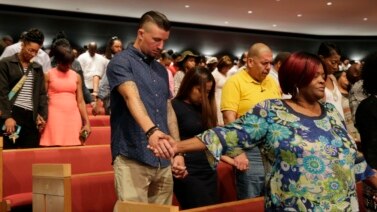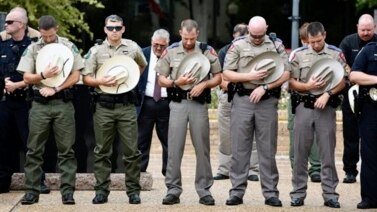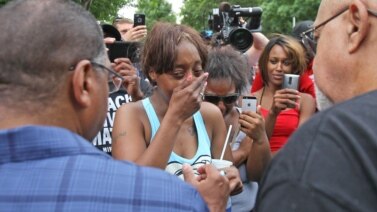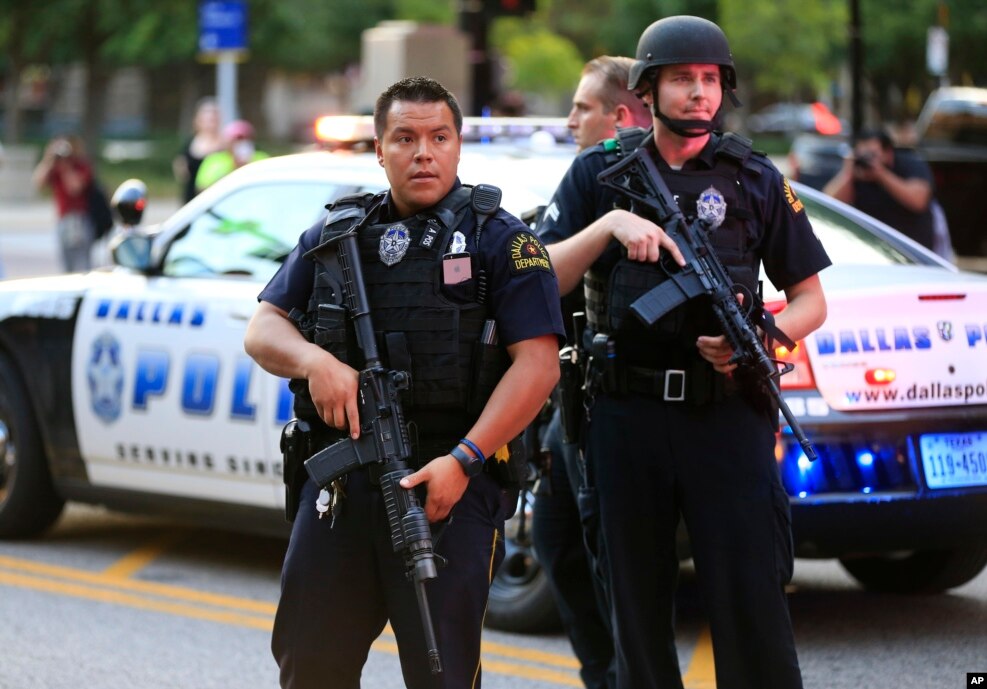
When students return to the J.J. Hill Montessori School in Minnesota next month, they will find counselors ready to help them.
The students will also find teachers and other school workers offering hugs and other support, Principal Fatima Lawson told VOA. She said her employees will show the children they care and want to help.
After J.J. Hill sent its 500 students home for their summer break, the school's popular cafeteria supervisor, Philando Castile, died. He was shot and killed by a police officer at a traffic stop.
His death and another killing, by police of an African-American man in Baton Rouge, Louisiana, fueled protests across the United States. It led to claims that some police officers target African-Americans for use of deadly force.
Later, a gunman killed five police officers in Dallas, Texas. Three other police were shot and killed in Baton Rouge. The Dallas officers were on duty at a demonstration called to protest the police shootings of African-Americans in Minnesota and Louisiana.
All this violence has set off emotional debate across the country -- about the dangerous work police do to protect people and continued charges of police discrimination against African-Americans.
'We Are Here to Help'
Many Americans are counting on schools to help young people make sense of the violence and the state of race relations in the country.
Fatima Lawson, the J.J. Hill Montessori School principal, expects students to be emotional when they return to school September 6. It will be their first day back since Philando Castile was shot and killed.
“We will let our students know we are here to help them,” Lawson told VOA. She said Castile was loved by the students, aged 4-11, because he always looked out to make sure they were doing well.
Castile's death became news around the world. After he was shot, his girlfriend, Diamond Reynolds, posted live cell-phone videos on social media as her daughter sat in their car's backseat.
The police officer's gun was aimed at Reynolds as she spoke about what happened. "He let the officer know that he had a firearm and he was reaching for his wallet, and the officer just shot him in his arm," she said.
Dealing With Baton Rouge's Violent Summer
Warren Drake heads public schools in Baton Rouge, Louisiana's capital. He agrees with Lawson that the most important thing school employees can offer returning students are “hugs and love.”
Drake told teachers and administrators the word that should drive their work is “respect.”
By respect, he means showing appreciation for the opinions and concerns expressed by students, their parents and other school employees.
“We need to listen to each other and respect each others opinions and concerns,” Drake told VOA.
Donald Hunter is a clergyman at the New Beginning Baptist Church in Baton Rouge. He also directs the city's Black Family Initiative, an organization set up to support families.
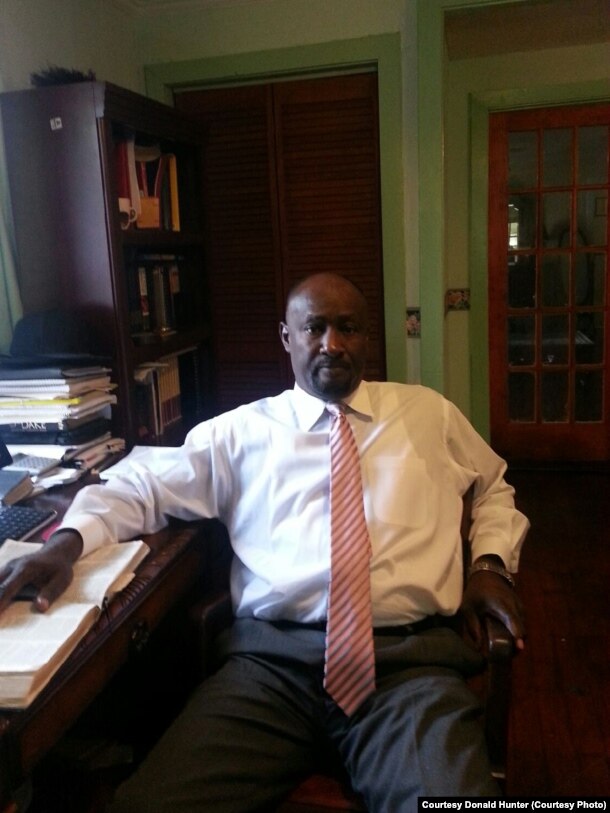
Hunter said he hears often from young African Americans “concerned, if not fearful,” of being pulled over by police in their cars for a minor problem and “not surviving.”
The killing of the three Baton Rouge police officers has put the city on edge, Hunter said. All three officers did their jobs well and fairly, he said.
Hunter credits Louisiana's new governor, John Bel Edwards, with putting the two “tragedies,” the killing of the officers and the earlier killing by police of Alton Sterling, an African-American, into balance.
Hunter said, like the governor, he hopes Baton Rouge city residents and the police will develop new respect for each other.
“Sometimes, good comes from tragedy,” Hunter said.
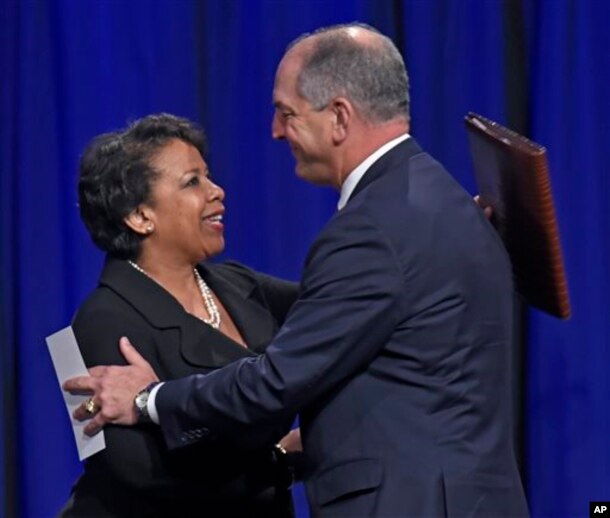
Schools Need to Ready Day One
Vicki Zakrzewski serves as education director at the Greater Good Science Center at the University of California, Berkeley.
She said that starting with the first day of school, teachers and other workers “should reassure children that they are in a safe place.”
Dallas Police Shootings Affected Many
The Dallas police shootings affected many people. Hundreds of demonstrators protesting police shootings had to flee as gunman Michah Johnson fired down from a nearby building.
Johnson told police he was trying to kill as many officers as possible, according to Dallas police reports.
Some students and teachers were trapped at Dallas' El Centro College, where Johnson held police in a standoff for hours before police killed him.
Mark Harrington, who teaches history at a Dallas high school, said for many children violence is common in their neighborhoods.
“But with what happened this summer, and all the publicity it got, I expect more kids will want to discuss it,” Harrington said. Harrington said his job will be to observe the discussions, and correct “statements that are not factual.”
I'm Bruce Alpert.
Bruce Alpert reported this story for VOA Learning English. George Grow was the editor.
We want to hear from you. Write to us in the Comments Section and share your views on our Facebook Page.
Words in this Story
counselor - n. a person who gives students advice
cafeteria - n. a room in a school where people get food at a counter and carry it to a table for eating
wallet - n. a small folding case that holds paper money, credit cards
appreciation - n. an ability to understand the worth, quality, or importance of someone*
reassure - v. to make someone feel less afraid, upset, or doubtful
trauma - n. a very difficult or unpleasant experience that causes someone to have mental or emotional problems usually for a long time
stand-off - n. an argument, competition of conflict in which there is no winner
